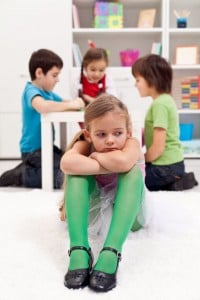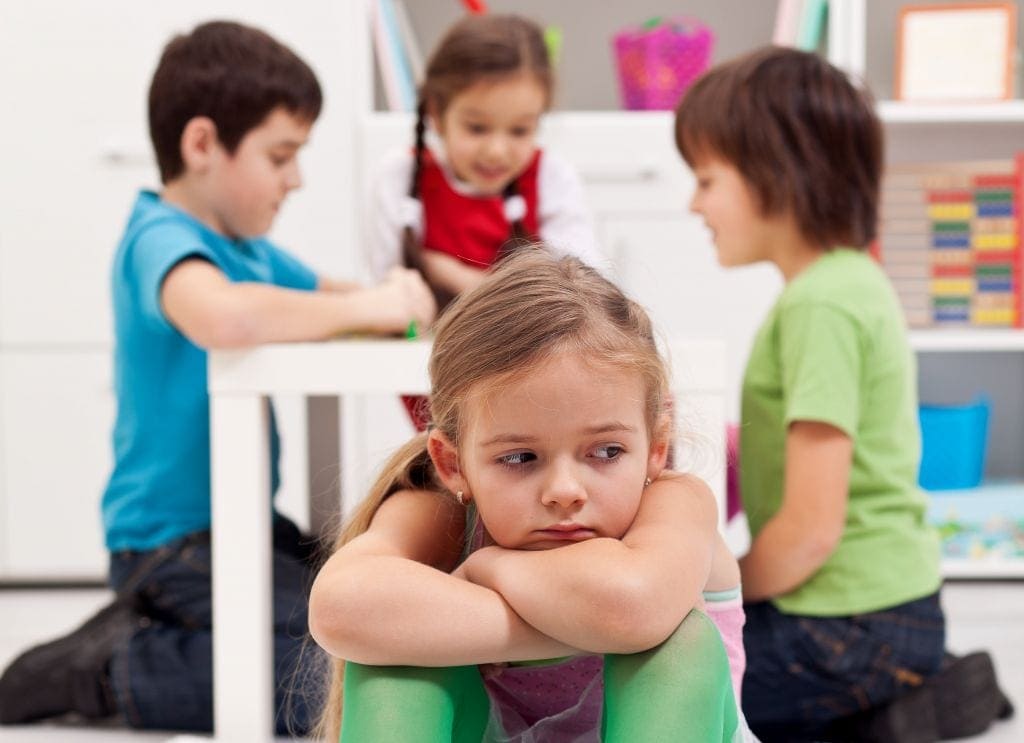Making friends when you are ‘different’
When children are infants, they only have an awareness of themselves. From their perspective, the world revolves around ‘me’. As children mature, an awareness of others usually develops. This generally occurs earlier with children whose cognitive development is advanced because this skill is developmental.
Sensitivity to another’s perspective and feelings forms the basis of the ability to empathise and is a critical element in establishing and maintaining friendships. Children of similar chronological age will vary significantly in their rate of development, level of awareness and sensitivity. As children develop the ability to understand how another person may be thinking or feeling, this awareness influences their behaviour towards others. A child, who has not yet developed awareness of another’s perspective, social and emotional experience, will lack understanding of the impact behaviour has upon others.
Another child of a similar age may have developed acute sensitivity to their own and others’ feelings, resulting in intense feelings that overwhelm the ability to make rapid decisions during social interactions. It has been found that highly intelligent children tend to have perception and awareness beyond what is expected at that chronological age. Children who are cognitively advanced can be extremely sensitive and may experience emotional overload as a result. These children, although intellectually advanced, may not yet have developed the capacity to regulate their own emotions, resulting in emotional outbursts of startling intensity.

Miraca Gross, through her research at UNSW, has developed a model of the stages of friendship, based upon children’s increasing levels of cognitive complexity and expectations about social relationships. Initially, a child looks for a ‘play partner’ – a child who will share toys. Next, shared interests become the focus as a child looks for another to chat to about mutual interests. Expectations that a friend will provide help, encouragement and support when needed characterise the third stage; however it is not until later that reciprocity, intimacy, emotional sharing, affection and bonding are seen as important aspects of friendship. There are strong correlations between a child’s level of intellectual development and a child’s more advanced concept of friendship.
The ability to empathise and respond sympathetically creates a magnetic attraction for those who need support. These are the children who listen to others’ troubles; feel the pain that others experience and are always trying to help friends and family. These might be very caring children, but frequently they lack the life experience and range of skills appropriate to provide the level of support needed. Gifted children may also become distressed when the level of emotional support that they have offered is not reciprocated by other children, without understanding that others have not yet reached the developmental level at which they are able to provide this.
Abraham Maslow, when developing his Hierarchy of Needs, identified that the social need to belong is one of our basic needs; requiring attention immediately after our most basic physiological and security needs are met. The drive for social acceptance is a very strong and basic need, however there can be problems. It is difficult for some children to achieve social acceptance, especially in social environments where conformity is highly prized. Gifted children are, by nature and definition, different from other children. They not only think differently; they feel differently as a result of the ways in which they think. These children may speak differently, using more advanced language, abstract concepts and have a more sophisticated sense of humour. Their interests may vary from others of similar age. They may have serial obsessions about topics that do not interest others of a similar age.
Difference is not usually well accepted within children’s groups. The need to be accepted is a primary drive, causing children to succumb to intense pressure to conform – if that is what is required to gain acceptance. Gifted children can get caught in a ‘forced choice dilemma’, feeling that they have to choose between fitting in to gain social acceptance, or standing out by being different, especially through academic achievement. Children who are in the process of developing their own identity are particularly vulnerable. It is only when children have access to others at a comparable developmental level, with similar values and aspirations that they do not feel the need to choose between fitting in and standing out. When placed with others of like mind, within environments that encourage difference and value achievement, children are able to establish friendships with true peers who accept them, for who they really are, not who they pretend to be.
Gross identified a further level of friendship, found among intellectually gifted youth, which she refers to as ‘the sure shelter’. This descriptor is taken from the verse “A faithful friend is a sure shelter; whoever finds one has found a rare treasure” (Ecclesiasticus 6:14) and refers to the emotional depth and unconditional trust found in abiding friendships. It takes cognitive awareness, emotional sensitivity, empathy and experience to achieve a sense of trust, safety and shelter within a friendship.
Michele Juratowitch, Director of Clearing Skies, provides counselling and social skills groups for gifted children. Michele was awarded a Churchill Fellowship. She is conducting a STEAM Residential for gifted girls in Years 5 & 6 to enable girls to participate in learning experiences with other girls of similar ability.
E: michele@clearingskies.com.au
P: 3378 0888
This article was published in Issue 10 of our print magazine, June/July 2015.

